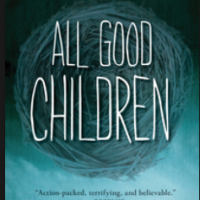Catherine Austen
Creative Writing
Suddenly a blog post
“World is suddener than we fancy it.”
(Louis MacNiece, “Snow”)
We’ve long been warned not to build tension on the cheap by spattering our manuscripts with the word “suddenly.” Lately I’ve read a few posts advising writers not to use the word at all – ever – because it’s meaningless. These are posts from editors enthusiastically reposted by other editors. I don’t know what they sift through all day, but they’ve given up on our ability to wisely use “suddenly.” It’s easier to strike it from the books.
I say no. Let “dead as a doornail” die, omit “really quite” anythings, and for God’s sake stop calling playful grins “sardonic smiles,” but let’s keep the sudden heart attack that fells the young athlete. (No, all deaths are not sudden. Yes, some are.)
“While, I nodded, nearly napping, suddenly there came a tapping,
As of some one gently rapping, rapping at my chamber door.”
(Edgar Allen Poe, “The Raven” – utter crap without the word suddenly, editors take note.)
Merriam-Webster says the first use of “sudden” was in 1558. Nothing happened suddenly before then, but things have sped up since. The word means:
- happening or coming unexpectedly;
- marked by abruptness or haste;
- made or brought about in a short time.
First you have to figure out if the thing in your book happened suddenly. (Sudden thunder? Uh uh.) Get rid of heroes who experience ordinary things as sudden. “Suddenly it was Monday morning” suggests a hero too dull to enjoy the weekend, while “Suddenly the yard was full of chickadees, just minutes after I filled the feeder” suggests she’s a moron. While your hero might feel like the light suddenly turned red, the five seconds of yellow should have built some expectations. (On the other hand, the guy who rammed into the hero’s car will attest that the hero suddenly braked and swerved.)
“And suddenly there’s no meaning in our kiss,
And your lit upward face grows, where we lie,
Lonelier and dreadfuller than sunlight is,
And dumb and mad and eyeless like the sky.”
(Rupert Brooke, “Town and Country”)
Next you have to figure out if it’s worth mentioning that the thing happened suddenly. Suddenly the phone rang? Lightning suddenly ripped through the sky? These things are almost always sudden, so don’t add the adverb. Save it for things that are strangely unexpected or have an equally sudden emotional component. Say, if there is a man in the house who didn’t phone first, and your hero catches a glimpse of him in a flash of lightning.
But even then you might want to hold back. “Suddenly there was a man on the couch” rings odd. Think about it: the man probably snuck in through the window after spying for a bit, carefully crept across the floor and settled on the couch savouring the hero’s ignorance of his presence. Not sudden at all, is it? What’s sudden is your hero noticing him. And since noticing a stranger in your house is pretty much always sudden, there’s no need to qualify it.
“Fury of wind, and no apparent wind,
A gust blowing the leaves suddenly upward,
A vine lashing in dry fury,
A man chasing a cat,
With a broken umbrella,
Crying softly.”
(Theodore Rhoetke, “What Can I Tell My Bones”)
But some things are strangely sudden and should be described as such. The temperature drops suddenly at the creepiest spot in the lake. A girl suddenly understands something she’s struggled with for ages. A man quits his job suddenly and takes important documents with him. People get married way too suddenly, at least from the perspective of a former girlfriend carrying a torch.
You can describe these things as sudden. Go on. I dare you.
If someone is chasing your hero as if he wants to kill her, but he “suddenly stops” at the boundary of the churchyard, that is a whole different thing than if he just “stops.” Replacing “suddenly” with “all at once” or “out of the blue” or “for some reason” is just cowardly. The dude stopped suddenly; he’s the anti-Christ; shout it out.
“Suddenly, from all the green around you,
something – you don’t know what – has disappeared;
you feel it creeping closer to the window,
in total silence….”
(Rainer Maria Rilke, “Before Summer Rain”)
Fictional lives have a heavier sudden factor than real lives, especially in the genres of horror (“suddenly there was a man in the house””), fantasy (suddenly I was in King Arthur’s court”), and romance (“suddenly my fall was cushioned by big strong arms”). There’s so much going on unexpectedly for our characters that we are tempted to overuse the word. So question every use.
“She is stuck in the time machine,
suddenly two years old sucking her thumb,
as inward as a snail,
learning to talk again.”
(Anne Sexton, “Briar Rose”)
I did a quick search for “suddenly” in a draft manuscript and found 13 instances, 11 of which were stupid. “She smiled suddenly,” “She turned to the window suddenly,” and sadly, “The captain suddenly came on the speaker” in the midst of violent air turbulence, screaming passengers, and dangling oxygen masks. Sheesh. No wonder editors hate it.
But I’m keeping, “Suddenly I knew she’d always hated me” and “She’d just left for work but suddenly she was back in the house calling my name” because those two feel right.
“let’s live suddenly without thinking…”
(e.e. cummings, “Let’s live suddenly without thinking”)
Maybe we use the word too often (“Suddenly the floor gave way and I fell into the cellar”) because we know readers don’t always pay close attention and we don’t want them to be two paragraphs on, thinking, “What? She’s in the cellar? Did the floor give way or something?” “Suddenly” means “pay attention to this bit.” But the better you write, the more readers will pay attention without having to be told. Perhaps the anti-sudden editors are simply saying, “Please write well.” Maybe they will accept a sudden this or that, after all.
Use it sparingly. Maybe even use it suddenly – take that editor by surprise. Keep it in good use, as good writers have done for centuries. (Just be prepared for the reply, “I was enjoying the story when suddenly it began to annoy me.”)
“Did you learn so suddenly (and I not by!)
Some whispered story, that stole the glory from the sky…”
(Rupert Brooke, “Desertion.” He used a LOT of suddenlys – there’s a thesis topic for you: the experience of the sudden in the work of soldier-poets.)






What a great post on a single word and our unthinking literary tics. Thanks.
Thanks! I’m glad you enjoyed it. (One day I will learn to write shorter posts.)
Excellent advice. Thanks!
You’re welcome! I hope you’ll keep “suddenly” in use, every now and then.
…..suddenly I was following a new blog.
Love this – thanks for stopping by.